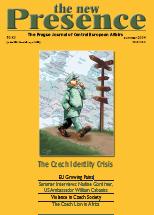
We kindly inform you that, as long as the subject affiliation of our 300.000+ articles is in progress, you might get unsufficient or no results on your third level or second level search. In this case, please broaden your search criteria.


To the outside observer, the Czech Republic’s first ever elections to the European Parliament in June certainly painted a confusing portrait of the Czech electorate. Just over a month after voting overwhelmingly in favor of joining the EU, less than one in three voters bothered turning out to decide who would represent them in one of the European Union’s most important institutions. Most of those that took the trouble to vote actually plumped for Euroskeptic candidates. As a result, many of the Czechs’ European partners could be forgiven for thinking that they are receiving mixed signals from a country whose geographical position places it at the heart of a new enlarged Europe. This lack of coherence and direction in Czech politics is taken up by journalist Jan Urban in his review of the Czech political scene over the last few months.
More...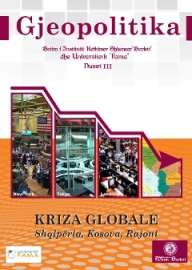
Mirëqënia jo gjithmonë prodhon lumturi. Kërkesa jonë për konsum nuk varet aq shumë nga të ardhurat sesa nga “konsumi i të tjerëve”. Kapitalizmi krijon një gjendje lufte brenda secilit prej nesh. Kjo luftë na rrit pasigurinë, aq sa shumë do të parapëlqenin një jetesë të qëndrueshme dhe të sigurtë në një sistem tjetër. Por e gjitha kjo, nuk i mohon dot arritjet e jashtëzakonshme të rracës njerëzore gjatë sistemit të konkurrencës së lirë dhe kapitalizmit.
More...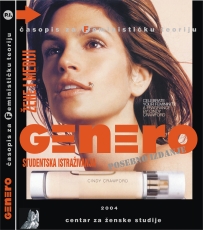
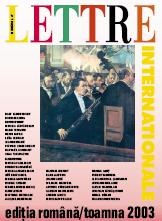
The main character of this article is the so-called “E-Generation” who masters the virtual world of the computer. In the twentieth century, mass media gave birth to several generations – people similar in their way of thinking, world outlook, way os establishing relations among themselves, points of reference.
More...

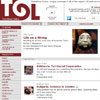
Alleged abuse at an Armenian school for the disabled led to a criminal probe – of the young activist who blew the whistle.
More...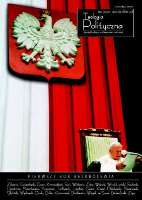
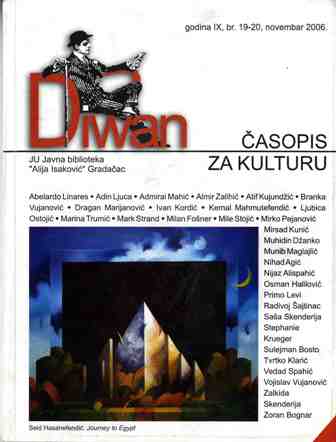
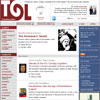
Specially trained police head for the poorest Roma settlements, and the Slovak elite debates new affirmative-action measures designed to lift minorities out of poverty.
More...
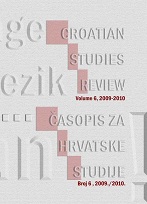
Foreign students who are studying Croatian language at the universities abroad have the perception of Croatia as a country of natural beauties, folklore and folk music, where there was a war, catholic country, the country of successful sportsmen, divided between nationalism and Yugoslavian nostalgia. The Croatian cultural identity is not recognizable. There are many reasons for this situation in practice, but only a few of them define the nonexistence of unambiguous definition of culture, moving the borders between so called elite and popular culture, the complexity of Croatian cultural identity, not adequate competence of the lecturers teaching Croatian culture abroad, nonexistence of systematical methodic of Croatian as a foreign and second language, the diversity of functioning of high school institutions abroad, the teaching of wider philological slavistics programs so called Bosnian-Croatian-Serbian, insufficient number of lexicons and manuals on Croatian culture abroad etc. To improve this situation into raise level of cultural competence on the level of language competence, the programs of Croatian language abroad should be dedicated to the enclosure of the Croatian culture in the teaching of Croatian language from the very beginning with the special accent on the Croatian history in its continuity. Only such programs of Croatian language which contain a clear concept of Croatian culture and which are performed by lecturers with an adequate cultural competence are the guarantee for the conserving of Croatian language and its way to interculturality in multilingual and multicultural community of European languages.
More...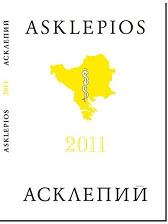

This article reflects on the connections and mutual influence of the social inequality and health status of the populations. There are emphasized the dimensions of equity in relation to health on one health and in relation to health care on the other. Derived from the assumption that the health is intrinsic component of the human well being it is underlined that the methodology for monitoring of the health and health inequalities on different levels should be attuned to the specific economical, socio-cultural and demographic indicators of each country. To generalize the immense social significance of public health sciences we demonstrated the remarkable trend in developed countries especially in EU to derive social security as dominating priority and to resolve in an enhanced manner the existing problems of the most vulnerable and demanding social support groups and individuals.
More...
Could the health behavior and its elements be altered through interventions towards the consequences rather than towards the causes? Health, according to the global formulations, should become “a supreme value”, almost “a life goal”. But should we ask ourselves whether it is not a means, whether it is not a consequence of some kind of development, of a certain lifestyle, even a criterion of the philosophy of our personal existence? Which is the leading cause for our personal health status and, after that, for public health? Do we love ourselves, our body, do we respect life?
More...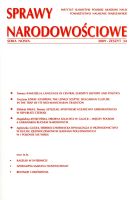
Will the Biblical Apocalypse come true? Do some of the civilizations proposed by Samuel Huntington correspond to the seven seals from the Book of Revelation? If this is true, does it tell us any more about the identity of the Antichrist and future Battles of Armageddon? According to Huntington, religion is the most important factor in the future of the world and is the main dividing line between the Islamic and Western worlds. The United States plays a leading role but Islamic civilization does not want to be directed by it. Muslims are generally afraid of the Western culture and they largely perceive it as depraved and unfaithful. On the other hand, however, the USA is also one of the most religious countries in the world, but in its own way. The two civilizations, for the most part, do not understand each other and have different interpretations as to what is good and what is wrong—this is why the dialogue is so important. Dialogue will help us to avoid stereotypes and ethnocentrism which was one of Huntington's sins. America has led a unipolar world since 1991. However, we can also observe “the rise of the rest”—the growing role of other global actors. Surveys of world public opinion show that in fact people wish the world was more multi-polar. The problem, however, is that the only great power whose leadership is widely supported is the European Union (EU) and the EU does not seem to want to play the role of the global leader. The EU has numerous unsolved problems with its own identity and the world is only changing largely through American led direction. However as globalization advances, the world is becoming increasingly multi-polar and will be led by many people from many different civilizations.
More...